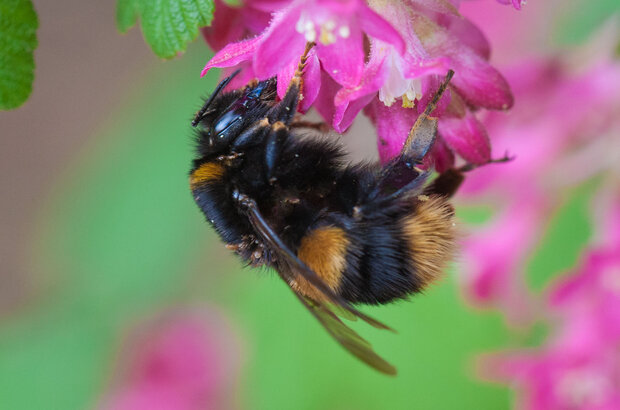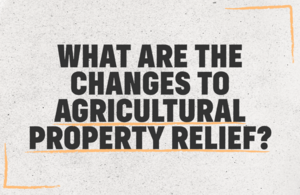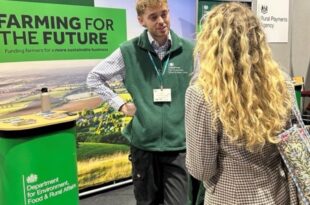
Environmental land management needs to deliver for farmers, foresters and land managers. Because it’s a big and complex area, it’s tempting to consider these groups of people separately, but for our policies and schemes to truly work, we need to bring the expertise from these groups together.
So that’s what we did. The Environmental Land Management Engagement Group (EEG) is another way that we’re doing co-design.
We set it up back in 2019, to ensure that stakeholders had a seat at the table during our early discussions and thinking. Since then, we’ve met over 20 times. Our meetings continued virtually during lockdown.
In between those meetings, we hosted lots of workshops to look at the details of our schemes – such as designing the standards for how an online application form might look.
Now that we’re well-established and we have a place to talk about our work here on the blog, I'd like to give a bit of an introduction to the group.
As with any group, not everyone always agrees and members have different priorities, but we believe that by looking at a subject from multiple perspectives, we will reach a better outcome.
The group is an invaluable sounding board. Members are generous with their insights. They challenge us, in a constructive way, on proposed approaches to the design and development of schemes. They are experts who have many years of knowledge and experience that we can draw on.
We regularly review membership to ensure it is diverse and represents the sector. We also include members in wider programme briefings to provide context and links between our work.
Members are, in turn, part of other networks. This makes it easier for us to find even more farmers and land managers with whom we can co-design our schemes and policies.
We’ve recently changed how we work. We meet for a whole day once every 3 months. We look at everything: from the Sustainable Farming Incentive to Landscape Recovery, including our tests and trials and piloting.
This group helps us to see the big picture and guide us. The ability of this group to jump between big thinking to specific detail is the biggest value. We meet with them all individually, to understand their concerns and priorities. This puts us in a stronger place when we relay our responses to the programme’s policy teams.
Although the group is not the only method of co-design that we use, we want to share more of our activity with you. We will blog about it regularly, so do subscribe to the Future Farming Blog.
Our members
- Adrian Steele – Soil Association
- Alice Groom – Royal Society for the Protection of Birds (RSPB)
- Alastair Leake – Game & Wildlife Conservation Trust (GWCT)
- Andrew Pearson – Agricultural Industries Confederation (AIC)
- Arlin Rickard – Catchment Based Approach (CaBA)
- Barnaby Coupe – Wildlife Trust
- Caroline Ayre – Confor
- Christopher Stopes – English Organic Forum and Organic Farmers & Growers C.I.C.
- Claire Robinson – National Farmers Union
- Helen Chesshire and Emily Hunter – Woodland Trust
- Graeme Willis – The Countryside Charity
- Hannah Conway – Wildlife and Countryside Link (WCL)
- Harry Greenfield – Country Land & Business Association Limited (CLA)
- Jenny Phelps – Farming and Wildlife Advisory Group (FWAG)
- Jeremy Moody – The Central Association for Agricultural Valuers (CAAV)
- Julia Aglionby – Uplands Alliance and Foundation for Common Land
- Jyoti Fernandes – Landworkers' Alliance
- Lucy Bates – Linking Environment and Farming (LEAF)
- Lynette Steel – Tenant Farmer Association (TFA
- Maddy Fitzgerald – The Prince's Countryside Fund
- Marcus Gilleard – National Trust
- Martin Lines – Nature Friendly Farming Network (NFFN)
- Neville Elstone – Institute of Chartered Foresters
- Pete Gaskell – Heritage Alliance
- Phil Stocker – National Sheep Association (NSA)
- Roz Bulleid – Green Alliance
- Tom Stuart – World Wide Fund for Nature (WWF)
- Vicki Hird – Sustain
We are constantly working to improve how we work with people to co-design environmental land management schemes, so if you would like to be involved we’d love to hear from you.
If you have any questions about the group, do leave a comment below or email ELMengagement@defra.gov.uk .





 The
The 
14 comments
Comment by James Hedger posted on
10 out of 10 for a fantastic spread of interests and skills amongst your members. You, we, are lucky to have them available.
Comment by Catherine Boyd posted on
Thanks James! They are a great bunch who we ask an awful lot of. Very grateful to have them!
Comment by Nigel Barnes posted on
I would say 1 out of 10 for diversity of interest on this group.
Where is the commercial farmer who is trying to make a living from the land?
Where is the land manager from a really heavy land farm who struggles with establishing cover crops? Where is the plant science organisation? How about NIAB?
I have increased my soil OM from 5 to 8% in the last few years but I am very disillusioned by the SFI, DEFRA, the EA and the future. There is nothing in the new policy for me. I am also custodian of a nationally important SSSI. I'm afraid to say it will go to ruin with the new support system.
The make up of this group sums up everything that is wrong with ag policy at the moment.
Comment by The Team posted on
Hi Nigel,
Thank you for your comment.
We are very serious about listening to and bringing real farmers into our co-design activity and we welcome any ideas on how to bring in greater diversity and increase participation.
This group helps to connect us to real life farmers, through their various networks as well as providing us with expert advice from their experiences.
Some of our members are even both farmers and representatives, but not all, which is why we are aiming to design the new schemes with as broader variety of farmers, land managers and organisations as we can, so that there is something for everyone.
We have recently been encouraging farmers to sign up for our co-design workshops so we can hear more from them.
You can read more about our co-design approach (and find out how to take part) in this post: defrafarming.blog.gov.uk/2020/12/11/what-we-mean-by-co-design
All good wishes,
The Team
Comment by Mark Harrison posted on
I value getting an insight on how you are using networks to co design programs going forward. Is there any reason there is no (at least none obvious to me) representation of the role of local authorities and climate finance interests in land use, management and restoration?
Comment by Catherine Boyd posted on
Thanks for visiting the blog and for raising those points.
When it comes to membership, the aim for this group was to reflect a broad range of those actively involved in the management of agricultural land. We do, however, recognise that local authorities, climate finance, and broader private finance interests also play important roles in achieving environmental outcomes.
We previously had the Local Government Association as a member, but they found it more useful to work with us on the details of local governance more specifically. We are also working closely with local authorities around our work of local priorities and delivering at a regional level.
Private finance is an important topic and so we have a whole area dedicated to it within our environmental land management work. We do engage with climate finance interests through Tests and Trials, the Financing UK Nature Coalition and through roundtables with private investors including water companies, banks, institutional investors, and retailers. The EEG has also had sessions run with them about blended finance to ensure we maintain that strategic view.
Catherine
Comment by John hawkins posted on
It currently looks like the 2022 SFI standard for arable soils needs to be more clearly explained to land managers because at present it is not clear to applicants if they can put their 10 or 20% of cover crops on rotational land within that parcel which is not also covered by SW6.. whilst double funding for Mid Tier CS is unacceptable is it not also unaccetable and discriminatory to therefore exclude farmers from the soil health element on a part or full parcel basis?
Comment by Catherine Boyd posted on
Thanks for raising this.
We are conscious that land owners who have signed up for Countryside Stewardship option Sw6 in particular fields on their holding are unlikely to be able to enter those fields into SFI 2022 soils standards, as this is likely to lead to double funding. We are currently looking at different solutions to this particular problem so that SFI early rollout is accessible to as many farmers as possible. However, we are also committed to ensuring that, as far as possible, agreement holders receive the same amount of money for comparable activities across the different schemes that will be available between 2021 and 2024.
Catherine
Comment by John hawkins posted on
Thank you Catherine. It is reasuring to know that you are engaging with as many farmers as possible to iron out the wrinkles before they become hard policy and open to negative scrutiny! Keep up the engagement and hard work..
Comment by George Hosford posted on
Yes that's a good broad selection of interests, and includes many who I know understand the role farmers need to play. However, noticeably absent are any actual farmers, who let's face it, are the poor sods who are going to have to make this all work!
Comment by Catherine Boyd posted on
Thanks for your comment.
Luckily for use some of our members do wear multiple hats as both farmers and representatives, but not all. We are really keen to bring real life farmers into our co-design activity as well. This groups helps us reach out to real life farmers, by utilising their networks. We’ve recently been encouraging farmers to sign up for our co-design workshops so we can hear from them more. You can read more about our co-design approach (and how to take part) in this post: defrafarming.blog.gov.uk/2020/12/11/what-we-mean-by-co-design
Catherine
Comment by Amanda Lyne posted on
I agree totally with James Hedger's comment. ELMS is acquiring a negative image "on the ground" though, so we very much hope that the financial implications for farmers are being given full attention - not just large arable businesses, but smaller livestock and family businesses.
Comment by Catherine Boyd posted on
Hi Amanda,
You're totally right - environmental land management needs to work for farmers. In our EEG meetings, our members make clear just how important the financial implications are. So that’s why we are currently testing the payments for our soil standards, to make sure it’s the right incentive for all types of farmers, including those smaller livestock and family businesses.
Are you a farmer yourself? If so, it would be great for you to join some of our co-design workshops. You can register your interest by emailing ffcpcodesign@defra.gov.uk
Catherine
Comment by Jamie Bartley posted on
It seems like a solid and varied team of people, we would welcome the option to present our research on Hemp cultivation in the UK. We have cultivated 240 acres of research crops over the last 3 years and have collated lots of data around the Carbon sequestration (20.24 Tonnes per Hectare), increase in follow-on crop yields of 16-18% and a great late season source of pollen for our bee populations. Is there any way we can engage and collaborate? Jamie Bartley (Unyte Hemp)